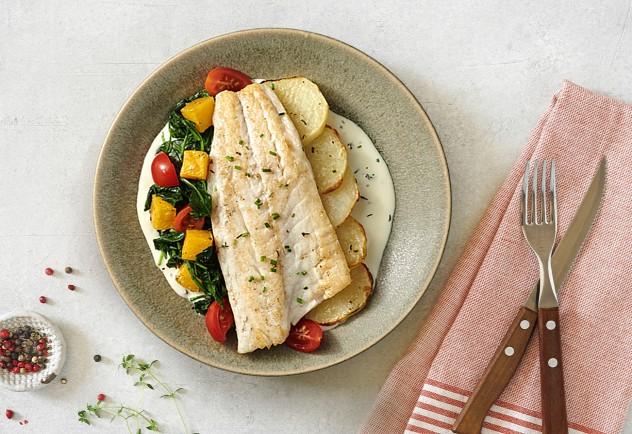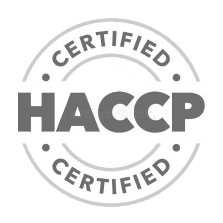7-Day Lower Cholesterol Meal Plan

Managing cholesterol levels is crucial for maintaining heart health and overall well-being. High cholesterol can lead to serious health problems, including heart disease and stroke, which are the leading causes of death worldwide.
According to the World Health Organization, cardiovascular diseases (CVDs) account for nearly 17.9 million deaths each year, representing 32% of all global deaths. Of these deaths, 85% are due to heart attacks and strokes (World Health Organization (WHO)).
In the UAE, the importance of a low-cholesterol meal plan cannot be overstated. Studies show that nearly 30% of adults in the UAE have elevated cholesterol levels, contributing to the country's growing rates of heart disease. A well-structured meal plan can help manage cholesterol levels effectively, reducing the risk of heart-related ailments.
Delicut is committed to providing nutritious and heart-healthy meal options tailored to meet the dietary needs of those looking to lower their cholesterol. Our 7-day meal plan is designed to offer a variety of delicious and easy-to-prepare meals that are low in cholesterol, high in fibre, and rich in essential nutrients. By following this meal plan, you can enjoy gourmet meals that are both good for your heart and convenient and affordable.
Now, it’s time for you to join our voyage to a healthier diet with our 7-day low-cholesterol meal plan, packed with foods good for the heart and body.
Essential Tips for a Low-Cholesterol Diet
Adopting a low-cholesterol diet can significantly improve your heart health and reduce the risk of cardiovascular diseases. Here are some essential tips to help you make heart-healthy choices:
- Opt for Unsaturated Fats: Replace saturated and trans fats with unsaturated fats in foods like avocados, olive oil, and nuts. These fats can help lower bad cholesterol (LDL) levels.
- Avoid Trans Fats: These fats, often found in processed foods, baked goods, and margarine, increase LDL cholesterol and lower good cholesterol (HDL). Always check food labels for hydrogenated oils.
- Increase Fiber Intake: Eat More Soluble Fiber: Foods high in soluble fiber, such as oats, beans, lentils, and fruits like apples and pears, help reduce cholesterol absorption into your bloodstream.
- Include Whole Grains: Whole grains like brown rice, barley, and quinoa are excellent sources of fiber and other heart-healthy nutrients.
- Variety of Colors: Aim to fill half your plate with fruits and vegetables of different colors. They are rich in vitamins, minerals, and fiber and help reduce cholesterol levels.
- Leafy Greens: Vegetables such as spinach, kale, and broccoli are particularly beneficial due to their high fiber and low-calorie count.
Lower Cholesterol Meal Plan
Maintaining a healthy heart starts with what you eat. This 7-day low-cholesterol meal plan is designed to help you manage your cholesterol levels while enjoying delicious and nutritious meals. Each meal is carefully planned to be low in cholesterol, high in fibre, and rich in essential nutrients. Here's your guide to a week of heart-healthy eating with calorie counts for each meal.
Day 1: Balanced Beginnings
Breakfast: Greek Yogurt with Fresh Berries and Nuts
Ingredients:
- 1 cup Greek yogurt
- 1/2 cup fresh berries (blueberries, strawberries),
- 2 tablespoons mixed nuts (almonds, walnuts).
Preparation: Combine Greek yogurt, fresh berries, and mixed nuts in a bowl.
Calories: Approximately 300 calories
Benefits: This meal is rich in protein and antioxidants, providing a great start to your day and keeping you full and energised
Lunch: Avocado and Turkey Wrap
Ingredients:
- 1 whole-grain tortilla
- 1/2 avocado (sliced)
- 3 oz lean turkey breast
- Lettuce, tomatoes
- Cucumbers
- 1 tablespoon balsamic glaze.
Preparation: Layer the tortilla with avocado slices, turkey, lettuce, tomatoes, cucumbers, and drizzle with balsamic glaze. Roll up the tortilla and enjoy.
Calories: Approximately 400 calories
Benefits: Packed with healthy fats and lean protein, this wrap is satisfying and heart-healthy.
Dinner: Grilled Salmon with Quinoa and Steamed Vegetables
Ingredients:
- 4 oz salmon fillet,
- 1/2 cup quinoa
- 1 cup mixed vegetables (broccoli, carrots, bell peppers).
Preparation: Grill the salmon. Cook quinoa according to package instructions. Steam the vegetables. Serve the salmon on a bed of quinoa with a side of steamed vegetables.
Calories: Approximately 450 calories
Benefits: This meal is high in omega-3 fatty acids and fibre and supports heart health and provides essential nutrients.
Snack: Apple Slices with Almond Butter
Ingredients
- 1 medium apple (sliced)
- 2 tablespoons almond butter.
Preparation: Dip apple slices in almond butter.
Calories: Approximately 200 calories
Benefits: Combining fiber and healthy fats makes this a nutritious and satisfying snack.
Day 2: Fiber-Rich Feast
Breakfast: Oatmeal with Chia Seeds and Sliced Strawberries
Ingredients:
- 1/2 cup oatmeal
- 1 tablespoon chia seeds
- 1/2 cup sliced strawberries.
Preparation: Cook oatmeal according to package instructions. Top with chia seeds and sliced strawberries.
Calories: Approximately 250 calories
Benefits: High fiber content helps regulate cholesterol levels and keeps you full longer.
Lunch: Chickpea Salad Sandwich on Whole Grain Bread
Ingredients:
- 1/2 cup mashed chickpeas
- 1/4 cup diced celery
- 1/4 cup diced bell peppers
- 2 tablespoons diced red onions
- 2 slices of whole-grain bread.
Preparation: Mix chickpeas, celery, bell peppers, and onions. Serve on whole-grain bread.
Calories: Approximately 350 calories
Benefits: Plant-based protein and fiber make this a heart-healthy lunch option.
Dinner: Baked Chicken Breast with a Side of Broccoli and Brown Rice
Ingredients:
- 4 oz chicken breast
- 1 cup steamed broccoli
- 1/2 cup brown rice.
Preparation: Bake the chicken. Steam broccoli and cook brown rice. Serve together.
Calories: Approximately 400 calories
Benefits: Lean protein and whole grains support a balanced diet.
Snack: Carrot and Cucumber Sticks with Hummus
Ingredients:
- 1 cup carrot sticks
- 1 cup cucumber sticks
- 1/4 cup hummus.
Preparation: Serve carrot and cucumber sticks with hummus.
Calories: Approximately 150 calories
Benefits: Low-calorie and high in fiber, this snack is perfect for maintaining energy levels between meals.
Day 3: Heart-Healthy Delights
Breakfast: Smoothie with Spinach, Banana, and Plant-Based Protein Powder
Ingredients:
- 1 cup spinach
- 1 banana
- 1 scoop plant-based protein powder
- 1 cup almond milk.
Preparation: Blend all ingredients until smooth.
Calories: Approximately 300 calories
Benefits: Packed with vitamins and minerals, this smoothie is a great way to start the day.
Lunch: Grilled Veggie Panini
Ingredients:
- 2 slices whole-grain bread
- 1/2 cup grilled zucchini
- 1/2 cup grilled bell peppers
- 1/2 cup grilled eggplant
- 2 tablespoons hummus.
Preparation: Grill vegetables, assemble panini with hummus, and grill until golden.
Calories: Approximately 350 calories
Benefits: Nutrient-packed vegetables provide essential vitamins and minerals.
Dinner: Lentil and Sweet Potato Curry
Ingredients:
- 1/2 cup lentils
- 1 sweet potato (diced)
- 1 cup coconut milk
- curry spices to taste.
Preparation: Cook lentils and sweet potatoes with curry spices and coconut milk.
Calories: Approximately 450 calories
Benefits: High in fiber and plant-based protein, this curry supports heart health.
Snack: Handful of Almonds
Ingredients:
- 1/4 cup almonds.
Preparation: Serve a handful.
Calories: Approximately 200 calories
Benefits: Healthy fats and protein make this a nutritious snack option.
Day 4: Protein-Packed Plates
Breakfast: Scrambled Eggs with Spinach and Whole Grain Toast
Ingredients:
- 2 eggs
- 1 cup spinach
- 1 slice whole-grain toast.
Preparation: Scramble eggs with spinach, and serve with toast.
Calories: Approximately 250 calories
Benefits: Protein and fiber for a balanced start to your day.
Lunch: Smoked Salmon and Cucumber Sandwich
Ingredients:
- 2 slices whole-grain bread
- 3 oz smoked salmon
- 1/2 cucumber (sliced)
- 1/4 avocado (smashed).
Preparation: Assemble the sandwich with ingredients.
Calories: Approximately 350 calories
Benefits: Omega-3 fatty acids and vitamins.
Dinner: Turkey and Vegetable Stir-Fry with Quinoa
Ingredients:
- 4 oz turkey breast
- 1 cup mixed vegetables
- 1/2 cup quinoa
- stir-fry sauce
Preparation: Stir-fry turkey and vegetables and serve with quinoa.
Calories: Approximately 400 calories
Benefits: Lean protein and whole grains.
Snack: Greek Yogurt with a Drizzle of Honey
Ingredients:
- 1 cup Greek yogurt
- 1 tablespoon honey.
Preparation: Drizzle honey over yogurt.
Calories: Approximately 200 calories
Benefits: Protein and probiotics.
Day 5: Low-Calorie Luxury
Breakfast: Smoothie Bowl with Berries, Nuts, and Seeds
Ingredients:
- 1 cup mixed berries
- 2 tablespoons nuts
- 1 tablespoon seeds
- 1 cup yogurt.
Preparation: Blend berries with yogurt, top with nuts and seeds.
Calories: Approximately 300 calories
Benefits: Antioxidants and healthy fats.
Lunch: Hummus and Grilled Vegetable Pita
Ingredients:
- 1 whole-wheat pita
- 2 tablespoons hummus
- 1/2 cup grilled zucchini
- 1/2 cup grilled bell peppers
- 1/2 cup grilled eggplant.
Preparation: Fill the pita with hummus and grilled veggies.
Calories: Approximately 350 calories
Benefits: Plant-based protein and fiber.
Dinner: Grilled Chicken Caesar Salad
Ingredients:
- 4 oz chicken breast
- 2 cups romaine lettuce
- 2 tablespoons Caesar dressing
- whole grain croutons.
Preparation: Grill chicken and toss salad with dressing and croutons.
Calories: Approximately 400 calories
Benefits: Lean protein and vitamins.
Snack: Popcorn (Air-Popped)
Ingredients:
- 1/4 cup popcorn kernels.
Preparation: Air-pop the popcorn.
Calories: Approximately 100 calories
Benefits: Low-calorie and high in fiber.
Day 6: Mediterranean Marvels
Breakfast: Greek Yogurt with Honey and Walnuts
Ingredients:
- 1 cup Greek yogurt
- 1 tablespoon honey
- 2 tablespoons walnuts.
Preparation: Combine ingredients in a bowl.
Calories: Approximately 300 calories
Benefits: Protein and healthy fats.
Lunch: Caprese Baguette
Ingredients:
- 1 whole-grain baguette
- 1 tomato (sliced)
- 2 oz mozzarella
- Fresh basil leaves
- 1 tablespoon balsamic glaze.
Preparation: Assemble the baguette with ingredients.
Calories: Approximately 350 calories
Benefits: Vitamins and antioxidants.
Dinner: Baked Cod with a Side of Mediterranean Quinoa Salad
Ingredients:
- 4 oz cod fillet
- 1/2 cup quinoa
- 1/4 cup cucumber (diced)
- 1/4 cup tomatoes (diced)
- 1/4 cup olives
- 2 tablespoons feta cheese
- 1 tablespoon olive oil, lemon juice.
Preparation: Bake the cod. Cook the quinoa according to the package instructions. Mix the quinoa with cucumber, tomatoes, olives, feta cheese, olive oil, and lemon juice. Serve the cod with the quinoa salad.
Calories: Approximately 400 calories
Benefits: Lean protein and fiber from the cod and quinoa, healthy fats from the olives and olive oil, and essential vitamins.
Snack: Fresh Veggies with Tzatziki
Ingredients:
- Carrot sticks
- Cucumber sticks
- 1/4 cup tzatziki sauce.
Preparation: Serve carrot and cucumber sticks with tzatziki.
Calories: Approximately 100 calories
Benefits: Low-calorie, high fiber, and perfect for maintaining energy between meals.
Day 7: Nutrient-Dense Nibbles
Breakfast: Smoothie with Kale, Apple, and Ginger
Ingredients:
- 1 cup kale
- 1 apple (cored and sliced)
- 1/2 teaspoon grated ginger
- 1 cup almond milk.
Preparation: Blend all ingredients until smooth.
Calories: Approximately 250 calories
Benefits: Packed with vitamins and antioxidants, providing a refreshing and energizing start to the day.
Lunch: Tuna and Avocado Lettuce Wraps
Ingredients:
- 1 can tuna (in water, drained)
- 1/2 avocado (mashed)
- lettuce leaves
- lemon juice.
Preparation: Mix tuna with mashed avocado and lemon juice. Spoon the mixture into lettuce leaves and roll up.
Calories: Approximately 300 calories
Benefits: Omega-3 fatty acids from the tuna and healthy fats from the avocado.
Dinner: Grilled Portobello Mushroom Burger on Whole Grain Bun
Ingredients:
- 2 portobello mushroom caps
- 2 whole grain buns
- lettuce, tomato slices
- Onion slices
- 1 tablespoon pesto or guacamole.
Preparation: Grill the mushrooms until tender. Assemble the burger with mushrooms, lettuce, tomato, onion, and your choice of pesto or guacamole.
Calories: Approximately 350 calories
Benefits: Plant-based protein and fiber, with healthy fats from the pesto or guacamole.
Snack: Mixed Nuts and Seeds
Ingredients:
- 1/4 cup mixed nuts (almonds, walnuts)
- 1 tablespoon seeds (pumpkin, sunflower).
Preparation: Serve a handful.
Calories: Approximately 200 calories
Benefits: Healthy fats and protein make this a nutritious snack option.
Conclusion
Adopting a low-cholesterol diet is a powerful step towards better heart health and overall well-being. By making mindful choices such as opting for healthy fats, increasing fiber intake, incorporating more fruits and vegetables, choosing lean proteins, and using healthier cooking methods, you can effectively manage and reduce your cholesterol levels.
Maintaining a balanced diet is crucial to staying hydrated and being mindful of portion sizes. Remember, small and consistent changes in your daily eating habits can yield significant health benefits. Embrace these essential tips to support a heart-healthy lifestyle and enjoy the journey towards better health.
FAQs
1. What are some high-cholesterol foods to avoid during this meal plan?
Avoid foods high in saturated fats such as red meat, full-fat dairy products, and processed foods like pastries and fried foods. Additionally, limit the consumption of trans fats in many commercial baked goods and snacks. These foods can significantly raise your LDL (bad) cholesterol levels.
2. How often should I incorporate fish or omega-3-rich foods into my diet?
Incorporate fatty fish such as salmon, mackerel, or sardines at least twice a week. Omega-3-rich foods help lower cholesterol levels and reduce the risk of heart disease. Flaxseeds, chia seeds, and walnuts are good alternatives for vegetarians.
3. Are there vegetarian options available in a lower-cholesterol meal plan?
Yes, vegetarian options such as legumes, tofu, quinoa, and various fruits and vegetables can be part of a low-cholesterol meal plan. These foods are naturally low in cholesterol and high in fibre, which helps manage cholesterol levels.
4. What are the benefits of following a lower-cholesterol meal plan?
A low-cholesterol meal plan helps reduce the risk of heart disease, stroke, and other cardiovascular conditions. It supports overall heart health by incorporating heart-healthy nutrients and reducing saturated and trans fats. This dietary approach can also contribute to maintaining a healthy weight and improving overall wellness.
5. Should I consult a healthcare professional before starting this meal plan?
Yes, it is advisable to consult with a healthcare professional or a registered dietitian before starting any new meal plan. They can provide personalised advice based on your specific health needs and ensure that the meal plan is safe and effective.
Trending Searches:
Meal Plan Dubai | Affordable Meal Plans Abu Dhabi | Meal Plan Ajman | Meal Plan Al In | Meal Plan Sharjah | Meal Plan Subscription
Related Blogs
The Burnout Diet
Jan 30, 2026 | 8The mental load of “What should I eat today?"
Jan 22, 2026 | 8The real glow-up starts with your gut health
Jan 14, 2026 | 8Healthy food that doesn’t taste like “Diet Food”
Jan 17, 2026 | 8Why do most people in the UAE get their calories wrong
Dec 8, 2025 | 6DASH Diet Meal Plan
Nov 11, 2025 | 8Fatty Liver Meal Plan
Oct 31, 2025 | 8Pregnancy Diet Meal Plan
Oct 27, 2025 | 82000 Calorie Meal Plan
Oct 1, 2025 | 8Intermittent Fasting Diet Plan
Sep 5, 2025 | 8






